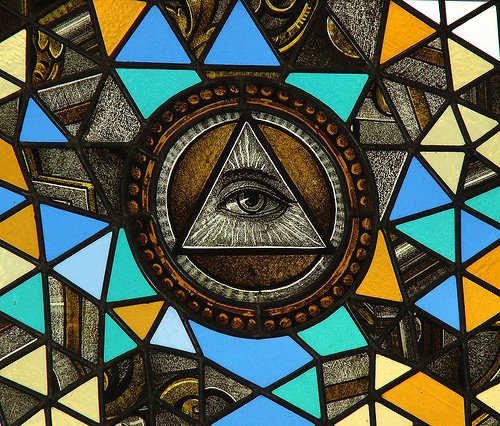Currently, here in NZ, our government is trying to rush through legislation to retrospectively legalise some illegal behaviour that the police have been engaging in. Like many people, I think this is a Bad Idea. In fact, I think it's a particularly bad idea at this point in time, because it exacerbates a real problem I've noticed of late in the relationship between the police and the wider community.
There seems to be a fundamental confusion in the ranks of the police as to what the purpose of their organisation is. This became glaringly clear with their last recruitment campaign (thankfully now defunct) which suggested that young people should join the police to "Get some better work stories" and "Make more money than your Dad" - they also compared the interest of the police in younger recruits to the sexual approaches of "cougars". This promotes a view of the police as a glamorous and heroic (not to mention subtly sexually fetishistic) organisation who bust Bad Guys and are desired and/or admired by all.
This is a mythic description of what a police force is, let's call it the Superman narrative. There's another mythic description of the police which is reasonably common at the moment. This one inverts all the values of the Superman version, to paint the police as at best dupes and at worst active players in a corrupt system deliberately designed to hurt innocent people. We'll call that the Robin Hood narrative.
When Superman believers hear people complain about the expansion of police powers, or suspect decisions regarding the use of violence, or searches of innocent foreigners, they're liable to shrug those off as an acceptable price for catching baddies or trot out a line like "if you're innocent, you have nothing to fear". Similarly, when Robin Hood believers hear about cops getting hurt or killed in the line of duty, they're liable to consider that their just desserts. Neither of these positions are helpful (or strictly truthful) and, worryingly, they make it very difficult for either side to talk to the other.
So, what are the cops? Well, they're public servants. They're empowered to enforce the law, which is the common ethical code our society has decided on, and their implicit responsibility following on from that is to prevent members of our society harming themselves or others. They do this, by and large, to the best of their ability but occasionally make mistakes. They are also (forgivably enough) subject to mental and emotional fatigue as a response to the relentless stupidity and bloody-mindedness of their fellow humans.
Ideally, a police force run along these lines would take steps to build links with as many communities as possible. There would obviously be the occasional bad call, resulting from the inevitable stress of the job, but they would be very cautious of damaging any relationship by appearing publicly arrogant or self-righteous.
Unfortunately, our police appear to be in love with the Superman narrative at the moment. This can be seen in their response to the complaint from the South African journalist they wrongly searched for drugs. A sensitive police force would have understood that given the man's history, his offence was understandable and apologised for that. It's also obvious from the police response to being told that they'd broken the law in the Urewera "anti terror" case - claiming that holding police to the same standards of law as everyone else will damage their effectiveness, instead of apologising for the breach.
The fact that the government are currently attempting to make everything the police have done retrospectively legal (and in the process make it legal for fisheries officers to bug New Zealand citizens) instead of investigating police practice and updating the law to sensibly reflect modern technology proves that they too are dazzled by the glamour and 4-colour moral simplicity of the Superman version.
The real problem with this is that it only gives the Robin Hood crowd more ammunition - and with enough provocation, they might just start shooting.

I'm more interested in exactly where the boundary is. I mean, as a volunteer water warden, do I have the power to install surreptitious video recording devices to find out whether someone has broken the law?
ReplyDeleteAlso, what happens if the recording contains child pornography (a strict liability offense, but one requiring to lawbreaking on the part of those seen by the camera - you have to be 16 to have sex, but 18 to be lawfully recorded doing so).